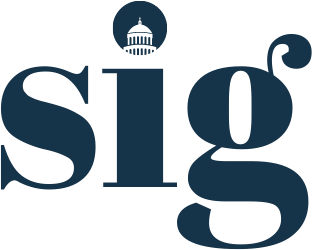Summer 2024 Fellow: Adri Kornfein, Electrical Engineering ‘25
This fellowship is part of a partnership between Stanford in Government, the Precourt Institute for Energy, and the Bill Lane Center for the American West. If you are accepted as a fellow for this office, you will be required to complete a one-unit course on energy in California taught by Professor Bruce Cain and Visiting Fellow Felicia Marcus. This 10-week summer fellowship runs from June 23, 2025 – August 29, 2025.
Program requirement:
Take a one-unit workshop spring course, ‘Energy Policy in California and the West’ taught by Bruce Cain and Felicia Marcus that will provide an in-depth analysis of the role of California state agencies, the Western Interstate Energy Board, and the Western Electricity Coordinating Council in driving energy policy development, technology innovation, and market structures. Course number is CEE 263G / POLISCI 73 / PUBLPOL 73 / ENERGY 73.
Schedule: Wednesdays from 1:30 pm – 2:50 pm. (Please note: You can only enroll in the course after getting approved for the fellowship and receiving a permission number.) Please refer to the Shultz Energy Fellowships website for the most up-to-date information about the course.
All Shultz fellows must be enrolled in the spring quarter before their fellowship.
Organization/Agency mission or role in state government:
The California Energy Commission is the state’s primary energy policy and planning agency. Created by the Legislature in 1974 and located in Sacramento, the California Energy Commission has seven core responsibilities:
- Forecast future energy demand (electricity and natural gas) to assist in planning California’s energy infrastructure;
- Promote energy efficiency by developing, implementing and enforcing the state’s appliance and building energy efficiency standards, encouraging energy efficiency upgrades in existing buildings and implementing the California Clean Energy Jobs Act (Proposition 39);
- Certify and issue environmental permits for thermal power plants 50 megawatts and larger;
- Invest in energy research, development, demonstration, and technology commercialization;
- Support renewable energy development by providing incentives for solar photovoltaic systems on new residential buildings and new geothermal facilities, and implementing the Renewable Portfolio Standard (RPS) in collaboration with the California Public Utilities Commission;
- Develop and deploy low-carbon alternative fuels and advanced vehicle technologies and infrastructure; and
- Plan for and direct state response to energy emergencies in close partnership with the California Office of Emergency Services.
Potential projects:
Work with Commissioner Gallardo, staff, and technical contractor to advance Commissioner Gallardo’s lead subject areas, including the Opt-in permitting process to certify clean energy resources and the Lithium Valley Vision proceeding. Activities will entail engaging with relevant external contractors; conducting research and analysis to produce guidance and recommendations to implement and improve the Opt-in program and for the commissioner to make decisions on the permitting process; and supporting the commissioner’s office on other tasks related to her policy portfolio.
Work environment:
Remote/Hybrid. The Shultz Energy Fellow will be invited to work in the office as much as they would like and attend business meetings and any events occurring during their fellowship. We may ask them to attend certain events in person if relevant to their work, but would not be required.
Potential mentors:
- Commissioner Noemí Gallardo
- Colleen Kredell, Special Advisor to Commissioner Gallardo
- Jimmy Qaqundah, Special Advisor to Commissioner Gallardo
- Erik Stokes, Chief of Staff to Commissioner Gallardo
- Aretha Welch, Special Advisor to Commissioner Gallardo
Desired skills:
- Strong communication skills (both written and oral)
- Ability to research and synthesize information across energy-related topics
- A demonstrated desire to work in a fast-paced team
- Ability to support the commissioner in her engagement with a wide range of stakeholders, tribes, and the public
- Coursework or experience in clean energy, sustainability, public policy, technical analysis, and/or physical sciences
Stipend amount:
$7,500-$9,500
